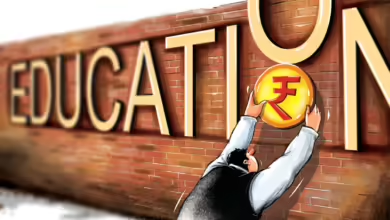National security strategy must be developed, according to NN Vohra
Today, NN Vohra, the former governor of J&K, spoke in favor of a national security strategy that includes all necessary security framework elements. According to him, it should include the interrelationships between each part, the command structure, accountability, and what would happen in the event of an emergency.

He was giving a speech at the 4th General K Sundarji Memorial Lecture, which was put on by the Centre for Land Warfare Studies (CLAWS) and the Indian Army’s Mechanized Infantry Centre and School (MIC&S).
According to Vohra, General Sundarji wrote about this in the 1980s, but the government never thought it was necessary to create a policy like this. He went on, “There is a mental hesitation and there exists a vast freedom of making ad hoc decisions in the absence of such a policy.” According to Vohra, a member of the Kargil Review group, the group recommended creating a pool of officers who would work their whole careers in intelligence agencies, defense-related ministries, and home and foreign affairs departments.
Vohra, who spent eight years in the Ministry of Defence, including two months as Defence Secretary (March 1990–April 1993), described General Sundarji as an Army commander with a long view. In addition to carrying out “Operation Brasstacks,” General Sundarji discussed the inadequacies in combat fighting and revised the Army handbook while serving as the Army Chief from 1986 to 1988.
“I don’t see any reason why the Henderson Brokes report on the debacle in the 1962 India-China war cannot be sent to all training academies and be de-classified,” Vohra said in reference to military history. He said that the Chief of Defence Staff should take his time in cutting the current 17 operational commands. There should be no rush.
Vohra, the former Home Secretary of the Union
(April 1993 to May 1994) discussed the “chronic problems” that the country is facing. Ethnic conflicts are occurring in the Northeast; some date back to before 1947, while others are supported by outside organizations. The second is the call for Pakistan-aided Khalistan. Organizations are spreading subversive information asserting that the movement is still alive. Among the other issues, he included the smuggling of weapons and narcotics, counterfeit money, and illegal immigration. Pakistan also supported terrorism in Jammu and Kashmir.
According to him, the Ministry of Home Affairs must relinquish all non-security responsibilities and take on the role of the nation’s central authority for security. Vohra warned that the Army’s lengthy history of internal security duties was altering the character of the soldiers, and that the Central Armed Police Forces should not be called upon for election duty. According to him, the Army should intervene only if an insurrection with foreign support was being incited.
In his book “Vision 2100,” Army Chief Gen. Manoj Pande emphasized General Sundarji’s vision in the areas of force structure, information warfare, digitalization of the battlefield, technological integration, and conventional strategy. The National Security Advisory Board member and former deputy chief of army, Lt Gen Subrata Saha (retd), gave a speech titled “Modernising India’s Armed Forces: Lessons from Gen K Sundarji.”







